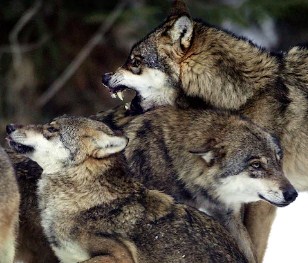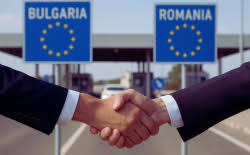Italy: Wolves won’t be culled

Rome: Demands by Italian farmers for the country’s burgeoning wolf population to be culled have been rejected by the government, with a newly launched management plan insisting that man and beast can co-exist.
After months of debate, the coalition has come up with a wolf management plan which firmly rejects the shooting, poisoning or trapping of wolves.
Instead, farmers of sheep, goats and other livestock will have to adopt measures to mitigate the risk of their flocks and herds being attacked, such as installing electric fences and using guard dogs.
There are an estimated 1,580 living in the Apennines, the mountains which run through the length of Italy, while the population in the Alps has more than doubled since 2015, from 130 to nearly 300 animals.
The national wolf management plan puts forward 22 “mitigation measures” for reducing wolf attacks on livestock.
Flocks can be protected at night with electric tape fencing or with specially-bred dogs – in Italy a large white breed called the Maremma is widespread, while in France shepherds often use the Pyrenean mountain dog. Farmers who do lose animals to wolf attacks are compensated by the authorities.
Sergio Costa, the environment minister, said: “We don’t need culling, but a strategy of management. Co-existence with the wolf is possible.”
Livestock were often killed by stray dogs, rather than by pure-bred wolves, he said.
“The wolf can be a valuable resource – in many countries people want to observe this extraordinary animal in the wild. In the 1970s the wolf was at risk of extinction in Italy but it is now considered to be a species worth protecting,” Isabella Pratesi, from WWF Italy, told La Stampa newspaper.
But the decision not to cull any wolves was criticised by farmers’ associations and some Italian regions, which had been pushing for the shooting of problem wolves.
The issue has exposed divisions between the two parties that make up the coalition – Mr Costa is close to the Five Star Movement, while many of the regions calling for wolves to be culled are run by the hard-Right League party.
“We need to look after the thousands of sheep and goats that are torn to pieces, the cattle that have their throats ripped out, and the donkeys that are killed by wolves. We expect a concrete commitment to compensation payments for farmers,” Coldiretti, the national farmers’ association, said in a statement.
Farmers were being driven out of mountainous areas because of wolf attacks on their flocks and that would change the character of those areas, the association said.
Giuseppe Pan, a regional politician with responsibility for hunting and farming in the northern region of Veneto, said he was disappointed by the wolf management plan.
Culling was allowed in many countries where the wolf was making a comeback, including France, Finland, Slovenia and Croatia, he said.
Efforts to protect livestock with fences and sheep dogs had “not proved sufficient to keep wolf predation under control,” he said.
Last year, 400 domestic animals were killed by wolves and 50 injured in Veneto, he said.
The plan, drawn up by the environment ministry, will now be put to regional governments for approval.





